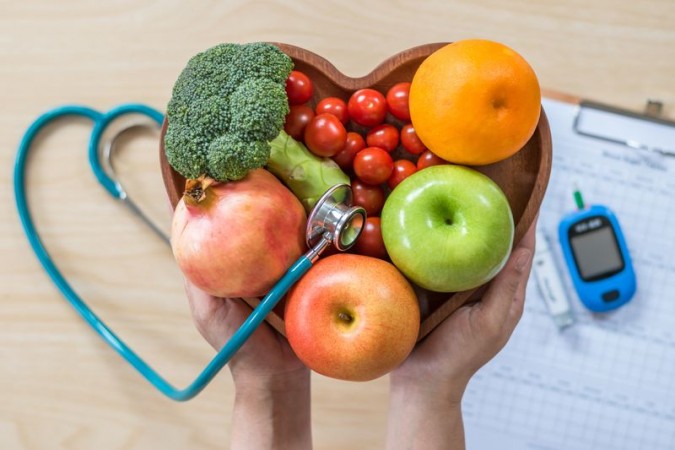
Diabetes is a chronic health condition where the body struggles to regulate blood glucose levels due to insufficient insulin production or ineffective use of insulin. Effective management of diabetes involves not only medication and lifestyle changes but also a keen understanding of how different foods impact blood sugar levels. Fruits and vegetables, while generally healthy, require careful selection and consumption for those with diabetes. Here’s a detailed guide on how diabetes patients can navigate their fruit and vegetable choices to maintain optimal blood sugar control.
1. Understanding Diabetes and Its Impact on Diet
Diabetes affects the body's ability to handle glucose. Glucose is derived from the food we eat and is used by the body for energy. In individuals with diabetes, blood glucose levels can become too high if the body cannot effectively use or produce insulin. Therefore, managing diet is crucial for controlling blood glucose levels.
2. The Role of Fruits and Vegetables in Diabetes Management
Fruits and vegetables are essential parts of a healthy diet. They provide vital nutrients and fiber but can also influence blood sugar levels. The glycemic index (GI) of foods helps determine how they affect blood glucose. Foods with a high GI can cause rapid spikes in blood sugar levels, while those with a low GI have a more gradual effect.
Fruits convert into glucose quickly, so their impact on blood sugar can vary significantly. Vegetables are generally lower in sugar but can still affect blood glucose levels, especially when consumed in large quantities or in their processed forms.
3. Fruits Recommended for Diabetes Patients
Certain fruits are more suitable for diabetes patients due to their lower glycemic index and fiber content, which helps in managing blood sugar levels:
Apples: Rich in fiber and vitamin C, apples have a low to moderate glycemic index and can help regulate blood sugar levels.
Pears: Similar to apples, pears provide fiber and essential nutrients without causing significant blood sugar spikes.
Guavas: High in dietary fiber and vitamin C, guavas have a low glycemic index and help in controlling blood sugar levels.
Cherries: These have a low glycemic index and are rich in antioxidants, which are beneficial for overall health.
Strawberries: Low in sugar and high in fiber, strawberries can be a good choice for managing blood glucose levels.
Oranges: Oranges provide vitamin C and fiber and have a moderate glycemic index that does not significantly affect blood sugar.
Jamun (Blackberry): This fruit has a low glycemic index and contains antioxidants beneficial for managing diabetes.
Dragon Fruit: Rich in fiber and low in sugar, dragon fruit can be a good option for those with diabetes.
Grapefruit: With its low glycemic index and high vitamin C content, grapefruit is a suitable fruit for blood sugar control.
4. Fruits to Avoid or Consume in Moderation
Certain fruits have a higher glycemic index or sugar content and can cause rapid increases in blood glucose levels:
Papaya: While papaya has a moderate glycemic index of 60, its sugar content can still impact blood glucose. Some nutritionists suggest that papaya may cause hypoglycemia (low blood sugar) in certain individuals, though this is debated.
Bananas: High in natural sugars, bananas can raise blood glucose levels. It’s best to consume them in moderation or choose lower-sugar fruits.
5. Vegetables: Best Choices and Preparation Tips
Vegetables are a crucial part of a diabetes-friendly diet. Here are recommendations on which vegetables to choose and how to prepare them:
Raw Vegetables: Some vegetables can be consumed raw, which preserves their fiber content and nutrients. These include tomatoes, onions, carrots, bell peppers, and cucumbers.
Cooked Vegetables: Cooking can make certain vegetables easier to digest and can enhance nutrient absorption. Vegetables like beets and spinach are better cooked to improve their digestibility and to reduce potential digestive issues.
6. General Dietary Tips for Diabetes Management
Incorporate Variety: To ensure a balanced intake of nutrients, include a variety of vegetables in your diet. Different vegetables offer different vitamins, minerals, and fiber types.
Cook for Digestibility: Cooking vegetables can make them easier to digest and can help in managing blood glucose levels more effectively.
Monitor Portion Sizes: Even low-glycemic fruits and vegetables should be eaten in appropriate portion sizes to prevent spikes in blood sugar levels.
Consult Healthcare Professionals: Always seek advice from a healthcare provider or nutritionist to tailor dietary choices to your individual health needs and diabetes management plan.
Managing diabetes effectively requires a thoughtful approach to diet. By selecting appropriate fruits and vegetables and understanding their impact on blood sugar levels, individuals with diabetes can maintain better control over their condition and promote overall health. Making informed dietary choices is a crucial step towards effective diabetes management and improving quality of life.
Rising Obesity- Urgent Action Needed for a Healthier India: Economic Survey 2024
Monsoon Blues: Understanding Monsoon Depression
High Alert Issued in Kerala After Death of 14-Year-Old Boy from Nipah Virus